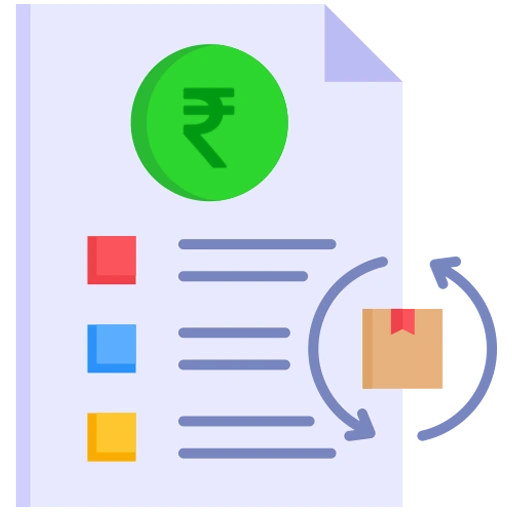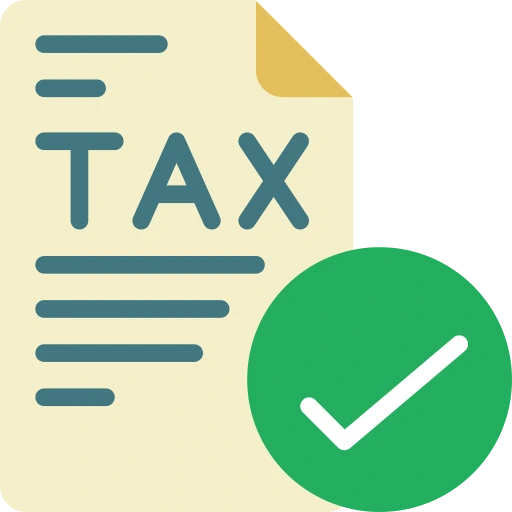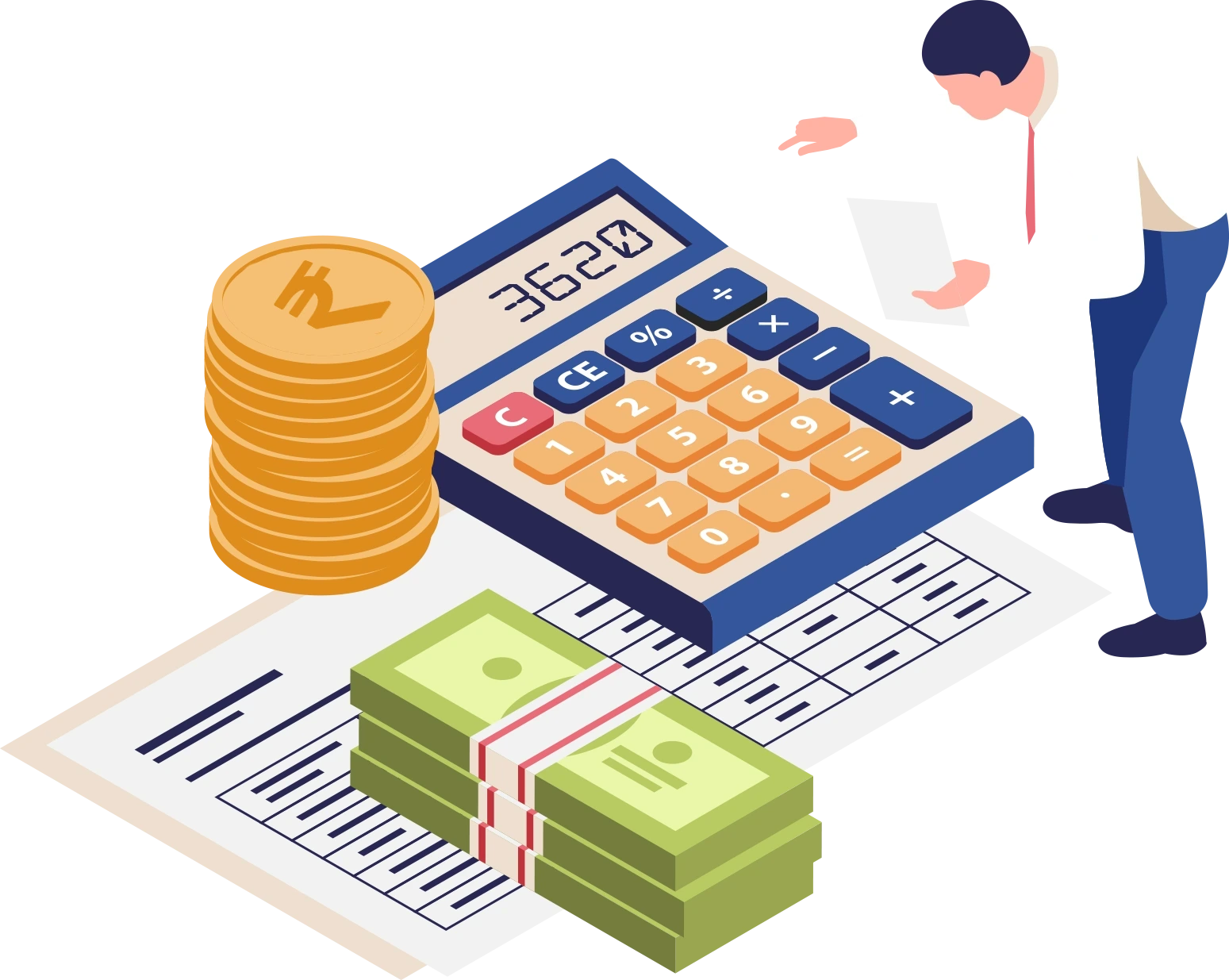What is Income Tax?
Income Tax is a tax that is charged by the central government on the income earned by the individuals or businesses during a financial year. Taxes are sources of revenue for the government. This revenue is utilized by the government in developing infrastructure, providing healthcare, education, subsidies to the farmer/agriculture sector and in other government welfare schemes. There are two types of taxes: Direct and Indirect. Income Tax is an example of direct tax.
Direct Taxes are widely classified into:
- Income Tax
- Corporate Tax
Income Tax is paid by whom?
- Individuals
- Hindu Undivided Family (HUF)
- Association of Persons (AOP)
- Firms
- Companies
Further, people are classified into residents and non-residents. Residents are liable to pay tax on the income earned in India and abroad. Whereas, people who qualify as Non–Residents are liable to pay taxes only on income accrued in India. The residential status of the individuals are to be determined separately for tax purposes for every financial year on the basis of their tenor of stay in India. Resident individuals can be further classified into:
- Individuals less than 60 years of age
- Individuals aged more than 60 but less than 80 years
- Individuals aged more than 80 years
Different Types of Incomes:
Anyone who earns an income in India is liable to pay Income Tax. It can be a resident or non resident of India who gets an income in India. There are five main income heads:
| HEAD OF INCOME | HEAD OF INCOME NATURE OF INCOME COVERED |
|---|---|
| Income from Other Sources | Income from savings bank account interest, fixed deposits, winning in lotteries is taxable under this head. |
| Income from House Property | Income earned from renting a house property is taxable under this head. |
| Income from Capital Gains | Surplus income from sale of a capital asset such as mutual funds, house property etc, is taxable under this head of income. |
| Income from Business and Profession | Profits earned by self employed individuals, businesses, freelancers or contractors & income earned by professionals like life insurance agents, chartered accountants, doctors and lawyers who have their own practice, tuition teachers are taxable under this head. |
| Income from Salary | Income earned from salary and pension is taxable under this head. |
Important Terminologies in Tax Calculation:
Assessment Year: The period between 1st April and 31st March starting immediately after the financial year is known as assessment year. This is called the assessment year because every taxpayer has to evaluate their earned income in the financial year and pay tax in this year. For instance,incomes earned during FY 2021-22, the assessment year will be AY 2022-23.
Financial Year: This is a one year period which the taxpayers use for financial reporting and accounting purposes. It is the year in which the income is earned. It is the period between 1st April of the calendar year to 31st March of the next calendar year, according to the Income Tax Act.
Assessee: It is a person or a group who assesses their income and pays tax according to the Income Tax Act. It can be a partnership firm, company, individual, a trust etc..
PAN: It refers to Permanent Account Number. It is issued by the Income Tax Department to Indian Taxpayers. It consists of 10 digit alphanumeric digits which are unique for everyone. All the transactions and the information of a person related to tax are recorded against their PAN
TAN: It refers to Tax Deduction and Collection Account Number. It is a 10 digit alpha numeric digit which is unique and is allotted by the Income Tax Department of India. It is compulsory to obtain and quote TAN by all persons responsible for deduction (TDS) or collection (TCS)
Deduction: It is a reduction in the total taxable income based on Section 80 and Chapter VI-A. Investments such as life insurance policies and payment of children’s tuition fees can help avail a tax deduction.
Exemption: Amount that is excluded from the gross total before calculating tax. Exemptions are available under Section 10 and 54. Interest from tax free bonds and salary like LTA are examples of exemptions.
Income Tax Payment:
Tax Deduction at Source (TDS): For determined installments, tax is deducted at source by the payer while making installment to the beneficiary of pay. The beneficiary of pay can claim the credit of the TDS sum by adjusting it with the final tax liability.
Advance Tax: The taxpayer should pay charge ahead of time when his assessed income tax liability for the year surpasses Rs 10,000. The government has determined due dates for installment of advance tax.
Self-Assessment Tax: It is the equilibrium tax that the taxpayer needs to pay on the assessed income. The self-assessment tax is determined in the wake of lessening the development charge and TDS from the total income tax determined on the assessed income.
E-Payment Facility: The taxpayer can pay self assessment tax, advance tax online from the NSDL website. Nonetheless, the taxpayer should have a net banking facility with an authorized bank.
Income Tax Law
Income Tax Act: The Income Tax Act incorporates every one of the arrangements that govern the nation's taxation. Consistently, the Finance Minister presents a budget in February. The Union Budget acquires different amendments to the Income Tax Act. The latest Union Budget introduced by the ongoing Finance Minister incorporated the presentation of a new tax regime. Aside from the Income Tax Act, different parts of the income tax law are income tax rules, booklets, notices and case regulations. These assist in the execution of income tax law and collection of taxes.
Income Tax Department: The income tax department is a government organization. The Act enables the income tax department to gather direct tax on behalf of the Government of India. The Ministry of Finance deals with the revenue elements of the Government of India. The finance ministry has given the errand of administration of direct taxes like Income-tax, and so forth, to the Central Board of Direct Taxes (CBDT). The CBDT is one of the parts of the Department of Revenue in the Ministry of Finance. The CBDT administers the direct tax laws through the Income-tax Department. Consequently, The income tax department is a government organization that administers the Income-tax law under the influence and oversight of the CBDT. The Income tax department has been provided the ability to collect direct tax on the behalf of the Government of India.
Return Filing of Income Tax
Filing of income tax return online has been made mandatory for all levels of taxpayers other than few exceptions such as:
Taxpayers aged 80 and above need not file return online Taxpayers having an income less than Rs 5 lakhs and not claiming a refund need not file return online
For the rest, online filing is required. Do take note that deadlines for filing of returns have additionally been endorsed. For most individual taxpayers, the due date for filing return of income is 31 July quickly following the concerned financial year. On the off chance that you don't document on time, here are some impediment:
- You will be denied carry forward of losses (except house property loss) to future years
- Delay in processing of refund claims if any
- Difficulty on getting home loans
- Levy of late filing fee upto Rs 10,000 under Section 234F
- Levy of interest under 234A if there are taxes due as on 31 July
E-filing online is a more complete and better alternative to filing on the income tax website. Additionally it is for more than just e-filing your income tax return. Once you file your return online, you either e-verify the same or take a print of the ITR V and send it to CPC, Bengaluru for processing of your return.
Income Tax Return
The taxpayer will file an income tax return every year through ITR forms prescribed by the income tax department. The government has prescribed seven ITR structures through which the taxpayer can file his income tax return. The taxpayer needs to choose the appropriate ITR structures and file his income tax return
Income Tax Forms
The seven ITR structures are:
ITR-1: Individuals (residents) having income from compensation, one house property, other sources, agricultural income less than Rs 5,000 and with a total income of up to Rs 50 lakh
ITR-2: Individuals/HUFs not having any business or profession under any proprietorship
ITR-3: Individuals/HUFs having income from a proprietary business or profession
ITR-4: Individuals/HUFs having presumptive income from business or profession
ITR-5: Partnership firms or LLPs
ITR-6: Companies
ITR-7: Trusts
Documents Required for ITR Filing:
Structure 16, Form 26AS, Form 16A, verification of tax saving investments made, bank account details etc are some of the vital details/documents that you need to be ready with before filing your return. Further the documents you will need to file your tax return are largely going to depend on your source of income.
Income Tax Calculation:
People ought to calculate income tax depending on the nature of income. The salaried individual can take the eligible exemptions available for different allowances received. People/HUF can take a deduction under Sections 80C to 80U, deduct it from the gross all total income, and calculate the income tax responsibility. Likewise, the total income tax liability ought to be adjusted by the taxes paid, like advance tax, TDS, etc. Likewise, the taxpayer ought to apply the effect of rebate under Section 87A and relief under Section 89, Section 90, and Section 91 to arrive at the net measure of income tax payable. Every income that you receive ought to frame some portion of your income tax return. Of course, the law does provide for exemption of certain incomes eg. dividend income from an Indian organization, LTCG on listed equity shares upto Rs 1 lakh in any financial year etc. Therefore, here is a speedy guideline you can presumably keep to compute taxes due on your income:
List down the entirety of your income - be it compensation, rental income, capital additions, interest income or profits from your business or profession
Remove incomes that are exempt under law
Claim all applicable deductions available under every source of income . eg guarantee standard deduction of Rs 50,000 from compensation income, claim municipal taxes from rental income, claim business related expenses from your business turnover etc
Claim all applicable exemptions under every head of income eg. sum reinvested in another house property can be claimed as exemption from capital gains income etc
Claim applicable deductions from your total income eg the 80 deductions like 80C, 80D, 80TTA, 80TTB etc You will currently arrive at your taxable income. Check the tax slab you fall under and appropriately arrive at your income tax payable.
The government keeps introducing and altering tax sections, schemes and tax benefits, so it's smart to keep up with the Budget.
What does calculation of Income mean?
The process of working out taxable income after considering the income from every one of the five heads (salary, house property, capital gains, business or profession, and other sources), exemptions, deductions, rebate, set off of losses, etc., is called calculation of income. After calculation of income, the taxpayer can compute the income tax obligation according to the Income Tax Act.
Rebate u/s 87A
Rebate under Section 87A permits taxpayers to reduce their income tax risk. Assuming you are a resident individual and the amount of your total income after reducing Chapter VI-A deductions (Section 80C, 80D, 80U, etc) does not exceed Rs 5 lakh in a financial year, you can claim a tax rebate up to Rs 12,500. This means, in the event that your total tax payable is less than Rs 12,500, you won't have to cover any tax.
E-Filing Return
The taxpayer will electronically file the income tax return through the e-filing platform of the income tax department. To file the income tax return, the taxpayer ought to initially register himself at www.incometax.gov.in. Thereafter, the taxpayer can log in to the website and file his income tax return. Likewise, there is no reason needed to physically send the acknowledgment of the return to the income tax department. The income tax department presently permits e-verification of the ITR in different ways, which completes the income tax return process.
What is ITR - V?
Form ITR-V is an income tax return verification structure generated after the taxpayer submits files income tax return and submits it to the income tax department. The ITR-V ought to be e-verified or should be sent to CPC Bangalore at "Income Tax Department - CPC, Post Box No - 1, Electronic City Post Office, Bangalore - 560100, Karnataka '' for verification. The ITR processing takes plae provided that its verification is completed.
Income Tax Saving Instruments:
The taxpayer can save tax by tax arranging. A taxpayer can do tax arranging by investing in tax-saving instruments. It helps in reducing the income tax risk. Section 80C to 80U of the Income Tax Act permits a deduction for certain expenditures and investments from the total computed income. Some of the well known Section 80C investments are:
Popular Section 80C Investments
| Section 80C | ELSS | ELSS | ELSS | ELSS | ELSS |
|---|---|---|---|---|---|
| Benefit | yes | yes | yes | yes | yes |
| Type of | Equity | Fixed Income | Fixed Income | Fixed Income | Fixed Income |
| Investment | 3 Years | 15 Years | 3 Years | 5 Years | 5 Years |
| Lock-in Period | No Max Limit | Rs 1.5 Lakh | No Max Limit | No Max Limit | No Max Limit |
| Maximum Investment |
*ELSS and NSC have no upper investment limit. However, you get tax benefits under Section 80C only up to Rs 1.5 lakh per financial year.
Health Insurance and Medical Expense Deduction:
Aside from the 80C deduction, a taxpayer can likewise take a tax benefit under Section 80D for health insurance premium and medical expenditure incurred for self, family and parents.
| Person Insured | Maximum Deductions Below 60 Years | Maximum Deductions 60 Years or Older |
|---|---|---|
| You, your spouse, your children | Rs 25,000 | Rs 50,000 |
| Your parents | Rs 25,000 | Rs 50,000 |
| Preventative health checkup | Rs 50,000 | Rs 50,000 |
| Maximum Deduction | Rs 50,000 | Rs 1,00,000 |
Education Loan Deduction:
Under Section 80E, the taxpayer can claim a deduction for the interest paid on a loan taken for higher education. There is no restriction to claim such a deduction in the income tax return.
Home Loan Deduction:
Under Section 24, the taxpayer can claim a deduction for interest paid on a housing loan during the relevant financial year. How much deduction will depend upon whether the house is self-occupied or let out. The taxpayer can likewise guarantee a deduction of the chief measure of credit under Section 80C up to Rs 1.5 lakh
| Deduction on Stamp Duty and Registration + Principal | Maximum Allowed (for self-occupied house propertys) | Maximum Allowed (for property on rent) |
|---|---|---|
| Deduction on home | Rs 1,50,000 within the overall limit | Rs 1,50,000 within the overall limit |
| loan interest under Section 24 | of Section 80C | of Section 80C |
| Deduction for first-time homeowners u/s 80EE *certain | Rs 2,00,000 | income must be shown in the income tax return). Further, maximum loss from house |
| conditions apply | Rs 50,000 | property capped at Rs 2 lakhs |
Deduction for Interest Income:
The taxpayer can likewise claim a deduction for interest on deposits from banks under Section 80TTA of the Income Tax Act. The people can guarantee up to Rs 10,000 deduction under the said section.
Tax Related Announcements in Budget 2022:
New updated return: A new provision is introduced to permit taxpayers to update the return and include any omitted income on payment of additional tax. The updated return needs to be filed within two years from the end of the relevant assessment year.
Surcharge: Corporate surcharge to be reduced from 12% to 7%.
Start-ups: The eligible start-ups under Section 80-IAC benefits are presently extended to the eligible start-ups incorporated until March 31, 2023.
Alternate Minimum Tax: AMT to be reduced to 15% for co-operative societies.
Crypto taxation: Income from transfer of digital assets, for example, crypto to be taxed at 30%. No deductions will be allowed except the expense of obtaining these assets. Loss on sale of these assets can't be set off against some other income. TDS at 1% will be levied assuming income is over the threshold. Gifting of digital assets will be taxable in the possession of the recipient.
NPS: The Finance Ministry has proposed to increase the deduction limit of employers' commitment to the National Pension Scheme (NPS) Tier-I account for state government employees from 10% to 14%
Section 80DDB: The parent/guardian of the differently-abled can take a tax deduction for payment to the insurance scheme that provides for the payment of the annuity or knot sumto the differently-abled dependant during the lifetime of the parent and guardians on accomplishing their age of sixty years or more, and the payment or deposit to such scheme has been discontinued.
Eligible business deductions: Any surcharge and cess levied on income are not allowed as business expenditure.
Losses set off rules: Brought forward misfortune can't be set off against undisclosed income detected during any survey or search.





















